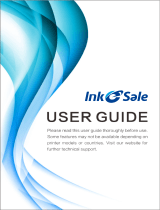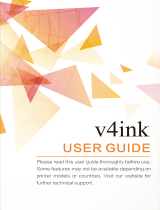
v
3 General Information 85
Control panel ...........................................................................................................................................85
Control panel overview ......................................................................................................................85
LED indications..................................................................................................................................87
Machine status messages .................................................................................................................87
Settings table.....................................................................................................................................88
Entering Text for Wireless Settings .......................................................................................................103
Printing Secure documents....................................................................................................................104
Secure documents...........................................................................................................................104
How to print Secure documents ......................................................................................................104
Security features....................................................................................................................................105
Setting Lock.....................................................................................................................................105
Secure Function Lock 3.0................................................................................................................106
IPSec ...............................................................................................................................................107
Ecology features ....................................................................................................................................108
Toner Save ......................................................................................................................................108
Sleep Time ......................................................................................................................................108
Deep Sleep mode............................................................................................................................108
Auto Power Off ................................................................................................................................109
Quiet mode feature ................................................................................................................................110
Turning Quiet mode on/off...............................................................................................................110
Color Correction.....................................................................................................................................111
Color Calibration..............................................................................................................................111
Color Registration............................................................................................................................112
Auto Correction................................................................................................................................112
4 Options 113
Lower tray (LT-320CL)...........................................................................................................................114
SO-DIMM...............................................................................................................................................115
SO-DIMM types ...............................................................................................................................115
Installing extra memory ...................................................................................................................116
5 Routine Maintenance 118
Replacing supplies.................................................................................................................................118
Replacing the toner cartridges.........................................................................................................122
Replacing the drum unit...................................................................................................................128
Replacing the belt unit .....................................................................................................................135
Resetting the belt counter................................................................................................................140
Replacing the waste toner box ........................................................................................................141
Cleaning and Checking the machine .....................................................................................................148
Cleaning the outside of the machine ...............................................................................................148
Cleaning the inside of the machine .................................................................................................150
Cleaning the corona wires ...............................................................................................................154
Cleaning the drum unit ....................................................................................................................157
Cleaning the paper pick-up roller.....................................................................................................164
Replacing periodic maintenance parts...................................................................................................165
Packing and shipping the machine ........................................................................................................166





















